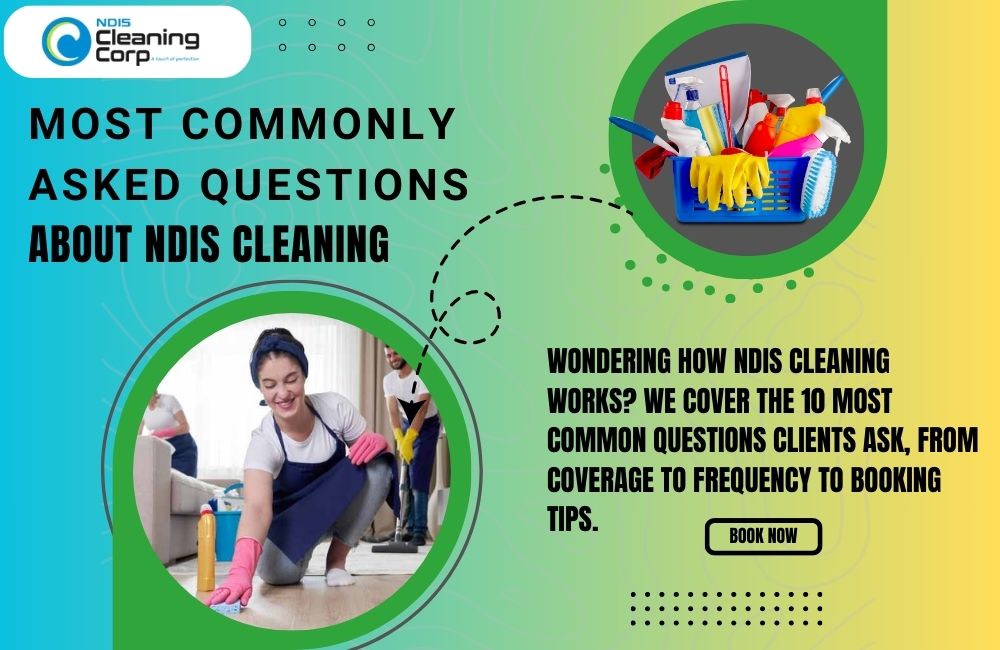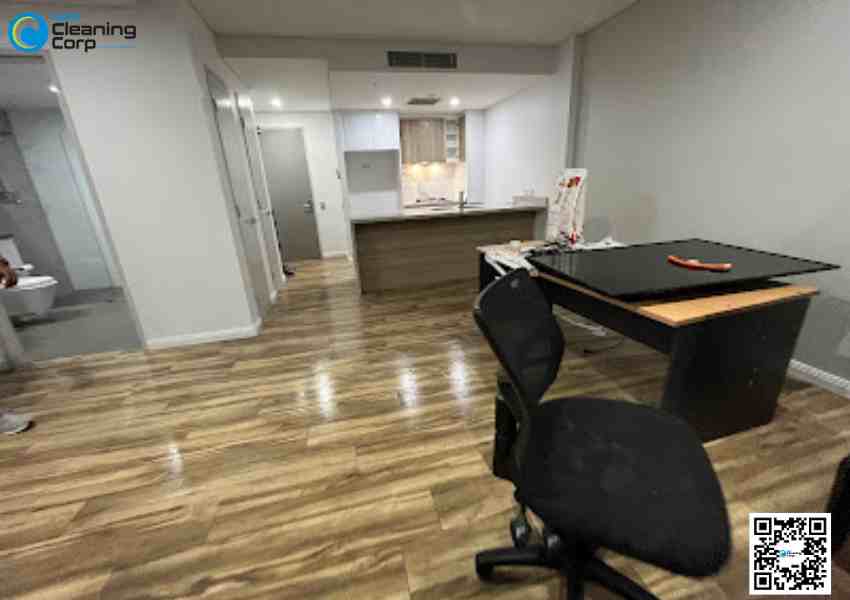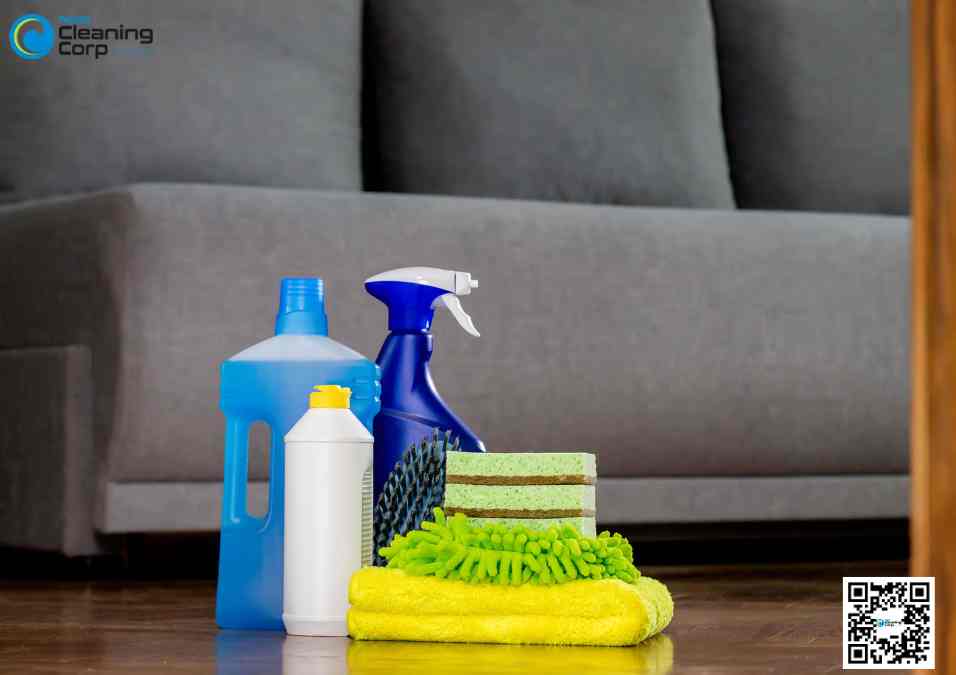Does the NDIS Fund Cleaning Services?
Yes. The NDIS does fund cleaning services — but it...
NDIS cleaning for participants with sensory sensitivities is crucial in fostering an environment that promotes comfort, safety, and cleanliness. For many individuals with disabilities, the cleaning process can trigger overwhelming sensory experiences. This necessitates cleaning solutions specifically designed to accommodate their unique needs. The right approach to cleaning can alleviate distress, reduce anxiety, and enhance overall well-being.
Tailored solutions in NDIS cleaning involve customized strategies that consider various sensory sensitivities. For instance, participants may experience discomfort from harsh cleaning chemicals or excessive noise from cleaning equipment. By implementing adaptive cleaning practices, such as using eco-friendly products and minimizing sound during cleaning tasks, service providers can significantly improve the living experience for these individuals. A study published in the Journal of Occupational Therapy revealed that 65% of participants reported increased comfort levels when cleaning tasks were modified to meet their sensory preferences.

A clean living environment plays a crucial role in enhancing overall well-being and independence for NDIS participants. Research indicates that cleanliness is directly linked to mental health outcomes. According to a survey by the Australian Institute of Health and Welfare, individuals who maintain a hygienic home report 30% higher satisfaction with their quality of life compared to those in unclean environments. Clean spaces reduce the risk of infections and allergens, fostering a healthy atmosphere. Moreover, independence is often linked to the ability to manage one’s living space effectively. NDIS cleaning services not only provide support for household chores but also empower participants by ensuring their environment is conducive to their physical and mental health.
Reducing overstimulation during cleaning tasks is essential for individuals with sensory sensitivities. Sensory overload can occur when there are high noise levels, bright lights, or excessive visual clutter in a space. Strategies that NDIS cleaning providers can implement include using quieter cleaning equipment and minimizing sudden movements.
For example, using vacuum cleaners designed for low noise can reduce auditory stress. Research from the University of Melbourne indicates that 70% of individuals with sensory sensitivity experience anxiety in environments with high noise levels. By clearly communicating preferences, participants can ensure that their cleaning providers tailor the approach to minimize discomfort.
Tips for participants include establishing a cleaning plan that specifies preferred times and methods for cleaning. Some may prefer cleaning during quieter hours when fewer activities occur nearby, while others may require that certain rooms be cleaned first to avoid disturbances in their primary living areas. Providing these preferences allows for a smoother cleaning process and a more positive experience.
Establishing routine cleaning schedules enhances the quality of life for participants with sensory sensitivity by providing predictability. Consistent cleaning routines can significantly reduce anxiety and stress, as participants know when their living environment will be maintained.
For instance, a participant may benefit from a cleaning service scheduled every Wednesday morning. This predictable routine fosters a sense of security, as the participant can plan their week around it, knowing that their home will be clean and comfortable. According to a study published in the Journal of Autism and Developmental Disorders, routines can improve the emotional well-being of individuals with disabilities, showing a 40% reduction in anxiety levels when they are implemented.
In addition to timing, the cleaning tasks performed can follow a predictable sequence, such as starting with dusting before vacuuming. This structure not only maintains cleanliness but also creates a calming atmosphere where participants can thrive. By establishing these routines, NDIS cleaning providers can empower participants, fostering independence and control over their living space.
NDIS cleaning refers to specialized cleaning services designed specifically for participants with disabilities. These services ensure that the unique needs of individuals are met through tailored cleaning processes and solutions that accommodate their sensory sensitivities and personal preferences.
NDIS cleaning services provide tailored solutions that focus on creating a hygienic and comfortable environment. By adapting cleaning practices to meet individual needs, these services enhance the overall well-being of participants. For example, customized cleaning schedules can alleviate anxiety, allowing individuals to feel more secure in their home environment.
Yes, many NDIS cleaning providers utilize eco-friendly and hypoallergenic products to ensure the safety and comfort of participants. For instance, non-toxic cleaners and natural disinfectants minimize the risk of allergic reactions while promoting a healthy living space. Research has shown that using such products can lead to a 50% decrease in respiratory problems among individuals with sensitivity.
To find NDIS cleaning services in your area, you can search for registered NDIS service providers online or contact your local NDIS office for recommendations. Many providers have websites that detail their services, including their specialization in cleaning for individuals with sensory sensitivities.
In conclusion, NDIS cleaning for participants with sensory sensitivities offers tailored solutions that greatly enhance their living environment. By prioritizing cleanliness and safety, these services significantly contribute to the health and well-being of individuals facing unique challenges.

Yes. The NDIS does fund cleaning services — but it...

Alright, let’s get straight into it. These are the questions...

NDIS cleaning services are specifically designed to cater to the...

The role of professional cleaning in maintaining a safe and...

Studies consistently show that living in a clutter-free, organized space...